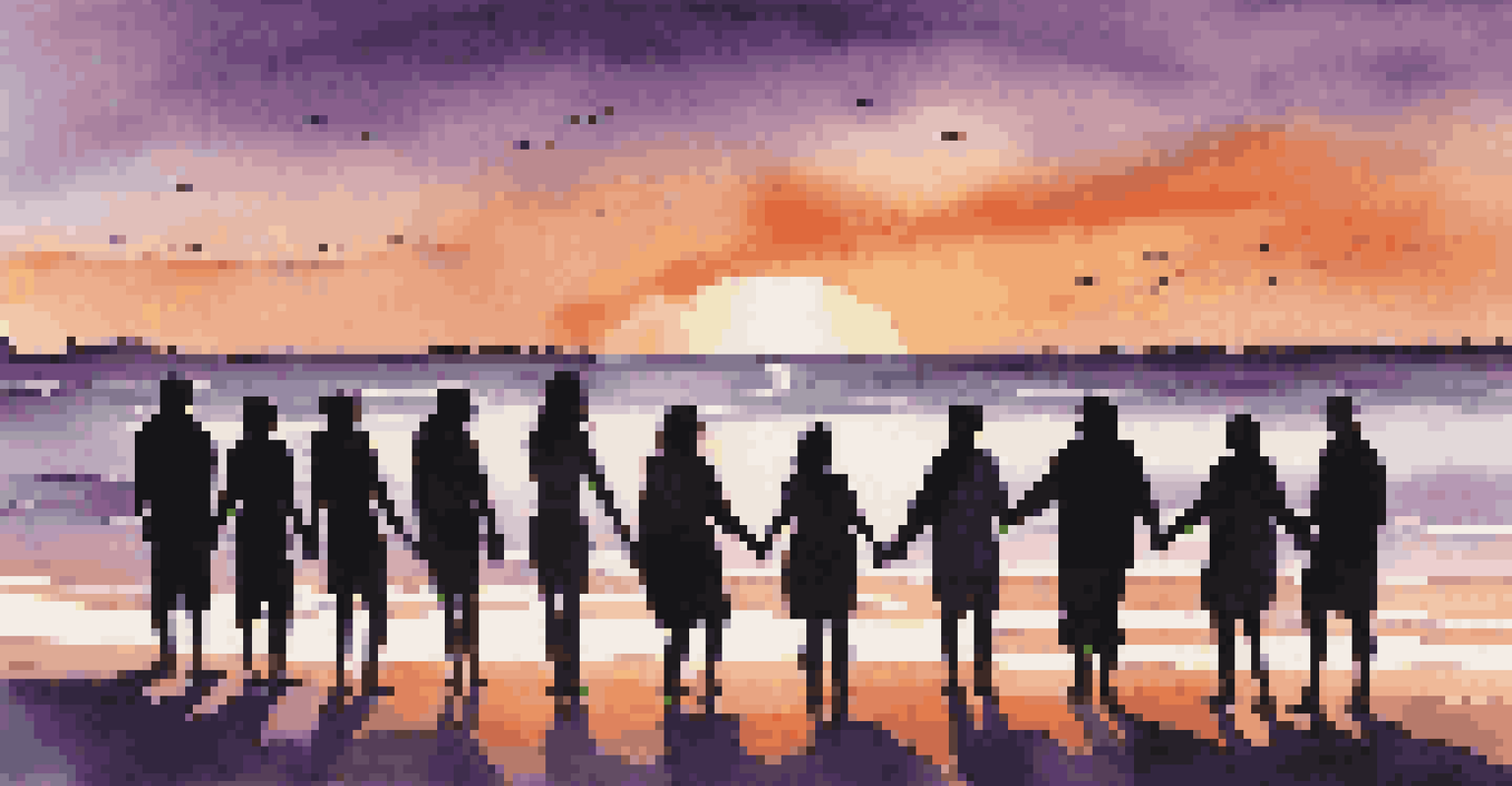Travel Safety for LGBTQ+ Individuals: Important Tips

Research Your Destination's LGBTQ+ Climate
Before you pack your bags, take some time to understand the LGBTQ+ climate in your destination. Different countries have varying degrees of acceptance, and knowing the local laws and cultural attitudes can make a significant difference in your experience. For instance, while many Western nations have made strides in LGBTQ+ rights, others may still have laws that criminalize same-sex relationships.
Traveling – it leaves you speechless, then turns you into a storyteller.
Websites like ILGA or local LGBTQ+ organizations can provide valuable insights. They often share personal experiences, safety tips, and updates on the legal landscape. Engaging with travel forums or social media groups dedicated to LGBTQ+ travelers can also offer firsthand accounts that might help you gauge what to expect.
This research not only prepares you for potential challenges but also helps you identify safe spaces, such as LGBTQ-friendly hotels, bars, and events. Knowledge is power, and being informed allows you to navigate your trip with confidence.
Connect with Local LGBTQ+ Communities
One of the best ways to ensure your safety while traveling is to connect with local LGBTQ+ communities. They can offer insights that online research may not cover, and they often know the safest neighborhoods, venues, and events. By reaching out through social media or LGBTQ+ organizations, you can find friends who share similar experiences and can guide you.

Attending local Pride events or LGBTQ+ meetups can be a great way to meet people and learn about the culture. Not only will this enrich your travel experience, but it will also help you feel more at home in unfamiliar surroundings. Plus, these connections can lead to friendships that last long after your trip ends.
Research LGBTQ+ Climate Before Travel
Understanding the local LGBTQ+ climate in your destination is crucial for a safe and enjoyable trip.
Remember, being part of a community can enhance your sense of belonging and security while traveling. It’s reassuring to have local allies who understand the nuances of their environment and can offer support if needed.
Choose Accommodations Wisely
Selecting the right place to stay can significantly impact your travel experience. Opt for LGBTQ+ friendly hotels or accommodations that explicitly promote inclusivity. Many travel websites now allow you to filter searches to find places that welcome LGBTQ+ guests, making it easier to find a safe haven during your adventures.
The journey of a thousand miles begins with one step.
Reading reviews from other LGBTQ+ travelers can provide insights into how welcoming and safe a property truly is. Look for comments on staff behavior and the overall atmosphere. A welcoming environment can enhance your comfort level, making it easier to relax and enjoy your trip.
Additionally, consider the location of your accommodation. Staying in a neighborhood known for its LGBTQ+ scene can provide both convenience and added safety. A vibrant area with visible LGBTQ+ presence often indicates a more accepting community, giving you peace of mind.
Stay Aware of Your Surroundings
When traveling, maintaining awareness of your surroundings is crucial for your safety. Just like you would anywhere else, stay alert to the people and environment around you. This doesn't mean living in fear; rather, it means being proactive about your safety by recognizing potential discomfort or danger.
If something doesn't feel right, trust your instincts and consider altering your plans. This could mean avoiding certain areas after dark or steering clear of situations that seem off. It's always better to err on the side of caution and prioritize your well-being.
Connect with Local LGBTQ+ Communities
Engaging with local LGBTQ+ groups can provide invaluable insights and enhance your travel experience.
Having a buddy system in place, whether it's traveling with someone or staying connected with friends back home, can also enhance your safety. Regular check-ins can provide an extra layer of security and ensure someone knows your whereabouts.
Use Discretion with Public Displays of Affection
While expressing affection is natural, it’s essential to be mindful of the cultural norms in your destination. In some places, public displays of affection (PDAs) may not be well-received or could even be illegal. Being discreet can help you avoid unwanted attention or confrontations.
Discussing boundaries with your travel companion can also help you navigate these situations. Establishing what you’re comfortable with in public can ease any anxiety about how to behave in unfamiliar environments. This way, you can enjoy your trip while minimizing risks.
When in doubt, observe how locals behave and adapt accordingly. This doesn’t mean suppressing your identity; rather, it’s about being smart and respectful of the cultural context you’re in.
Keep Important Documents Secure
Traveling often involves carrying crucial documents like passports, identification, and travel itineraries. Keeping these items secure is essential, especially when traveling as an LGBTQ+ individual in areas where you might face discrimination. Consider using a money belt or a secure travel pouch that can be hidden under your clothing.
Make digital copies of your important documents and store them in a secure cloud service. This way, if anything gets lost or stolen, you have access to the necessary information without significant hassle. It also makes it easier to report lost items to authorities or get replacements.
Have a Safety Plan for Emergencies
Creating an emergency plan and knowing local resources can help you navigate unexpected situations while traveling.
Additionally, familiarize yourself with local laws regarding identification and documentation. In some places, you may be required to show ID at various times, so knowing what to expect can help you avoid unnecessary complications.
Have a Safety Plan in Case of Emergencies
No one likes to think about emergencies while traveling, but having a plan can provide peace of mind. Research local emergency numbers and know the location of nearby hospitals or safe places. Familiarize yourself with the local laws concerning emergencies, as protocols may differ from what you’re used to.
Consider downloading safety apps that can help you navigate through emergencies. Some apps can share your location with trusted contacts or provide instant access to local resources. Additionally, having a list of emergency contacts saved on your phone can be invaluable in a crisis.

Lastly, don’t hesitate to reach out to local LGBTQ+ organizations for support if needed. Many of these groups offer assistance for travelers and can provide resources during a difficult time, helping you feel less isolated in moments of need.